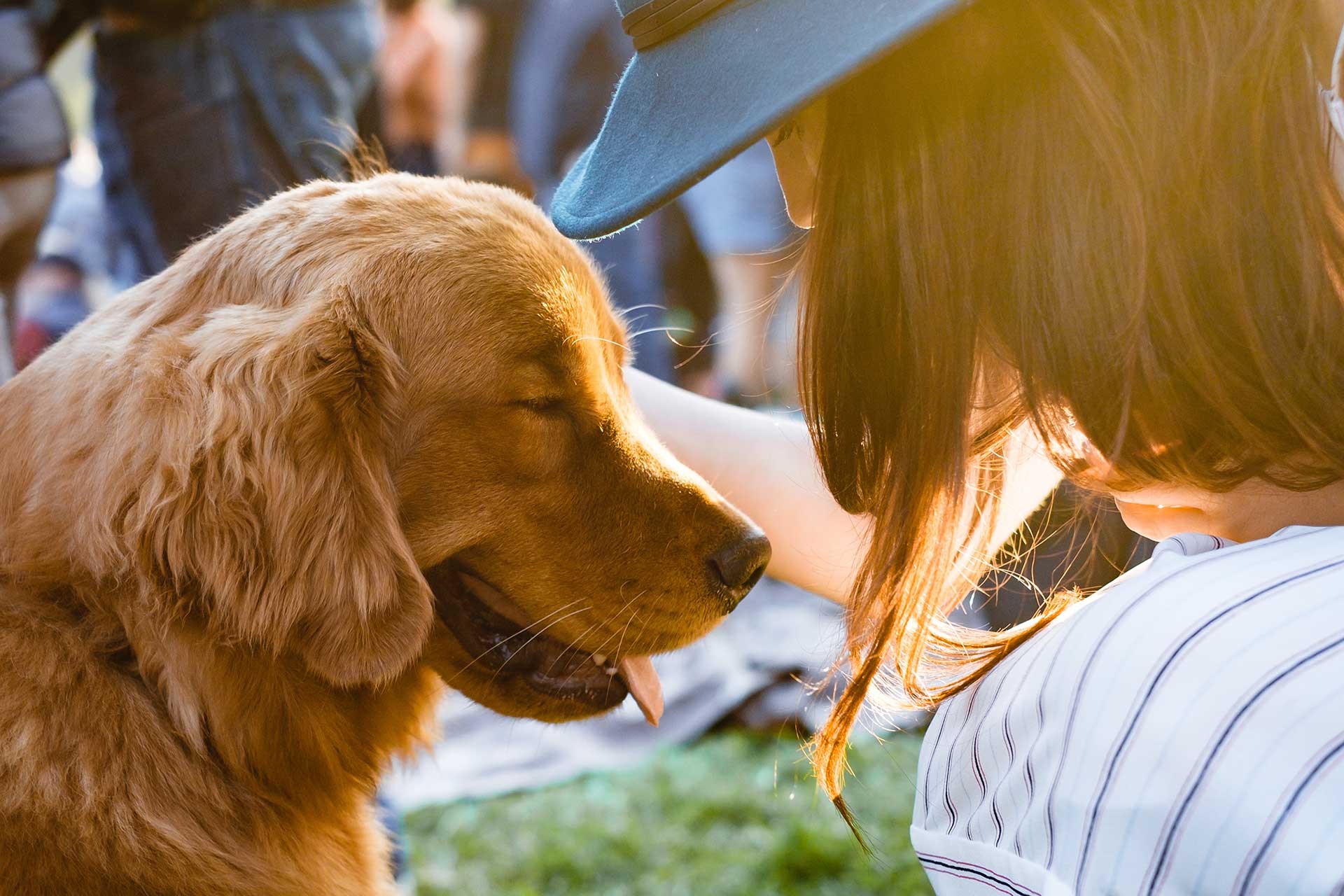Grief & Healing
Supporting Families
Here are Some of The Best Ways to Support Them
It's never easy. Finding the right words, the fear of saying the wrong thing; even a lack of personal experience with pet loss leave many people uncomfortable reaching out to a grieving friend.
Often, we feel that if we said just the 'right thing' we could change their suffering for good. And, what if we made it worse for them, by creating additional pain for our friends in mourning? Those feelings of inadequacy and concern cause us to ignore a simple fact: the loss of a animal companion cannot be enhanced, or relieved, by words.
Their bereavement is a process, and as a friend, you can offer support and a listening ear, but there is no way to take away the pain from the person who has experienced the death of a pet. Rather than worry about what to say to a grieving friend, you should be receptive to their needs and offer assistance whenever possible.
During the Early Days
When pet loss grief is new and fresh, it can be almost unbearable, and sometimes it's a bit unnerving to be with someone who is only hours away from a loss. What can you do during this most difficult time?
Simply listen. Take time to sit down with a grieving friend and ask about their deceased pet. They will be more than willing to share their favorite memories. Let the grieving person know that it's okay to cry in front of you, to get angry, or to break down. Don't try to reason with them over how they should or shouldn't feel. The bereaved should feel free to express their feelings, without fear of judgment, argument, or criticism.
Be willing to sit in silence. Sometimes the grieving friend or family member will find it too difficult to talk, but takes great comfort in having someone close by. Don't press if the grieving person doesn't feel like talking. You can offer comfort and support with your silent presence. If you can't think of something to say, just offer eye contact, a squeeze of the hand, or a reassuring hug.
Let the bereaved one talk about how their pet died. People who are grieving may need to tell the story over and over again, sometimes in minute detail. Be patient. Repeating the story is a way of processing and accepting the death. With each retelling, the pain lessens.
Ask how you can help. Be willing to take over as many simple tasks as possible. Even small jobs can add to the stress of a grieving person. Be willing to take the initiative; many people have trouble accepting help when it's offered. You may need to simply tell them what task you are doing on their behalf, and then do it.
Mention the pet's name. Grieving people need to feel like their animal companion has not been forgotten, and mentioning their name in conversation will also makes it easier for everyone to talk about their feelings about the death.
Take the Time to Call. Pick up the phone regularly, and call your grieving friend to see how he is doing. Place a call within a couple days of the funeral to let your friend know you are always free to talk, and then follow-up every few days to see if they need help with anything.
During the Later Months
Some people feel that recovery from pet loss should be easier, and shorter, than grieving the loss of a human being. We at Precious Companion Cremation Care know that grief and mourning have their own time table. Your friend may still be in grief months after the loss. Being conscious of their unique timetable, and mindful of the support they'll need throughout this time can make all the difference – to both of you.
As they come to a more stable place emotionally, your friend or family member may feel the desire to tentatively step back into life. Helping them to do that means extending a hand, and asking them out.
Involve them in your activities. Invite your friend to social occasions so they have the opportunity to meet new friends and get their mind off their loss.
Plan new activities together. That way, both of you has something to look forward to, even if it's just a short walk in their neighborhood, or a movie date.
Always remember holidays and anniversaries. These are the days of the year that are the hardest times for people suffering from grief. So, plan ahead and invite them to your home or make a visit to their home to wish them a happy holiday. Let them know that they have many friends and family members ready to help them through these difficult days.
Learn the Danger Signs
While grieving is a necessary and healthy process, people can easily slip into extremes. If a grieving person demonstrates any of these signs, they may need professional help. Communities, religious centers, funeral homes and healthcare organizations have grief counseling programs or support groups.
- Weight loss
- Substance abuse
- Depression
- Prolonged sleep disorders
- Difficulty functioning in daily life
- Extreme focus on the death
- Excessive bitterness, anger, or guilt
- Neglecting personal hygiene
- Inability to enjoy life
- Hallucinations
- Withdrawing from others
- Constant feelings of hopelessness
- Talking about dying or suicide
The best gift a friend can give to a friend who just lost someone they love (whether human or animal) is the permission to grieve. Do not force a grieving person to return to a normal life before they are ready. Allow them to go at their own pace, but provide encouragement and emotional support to enhance the healing process.


